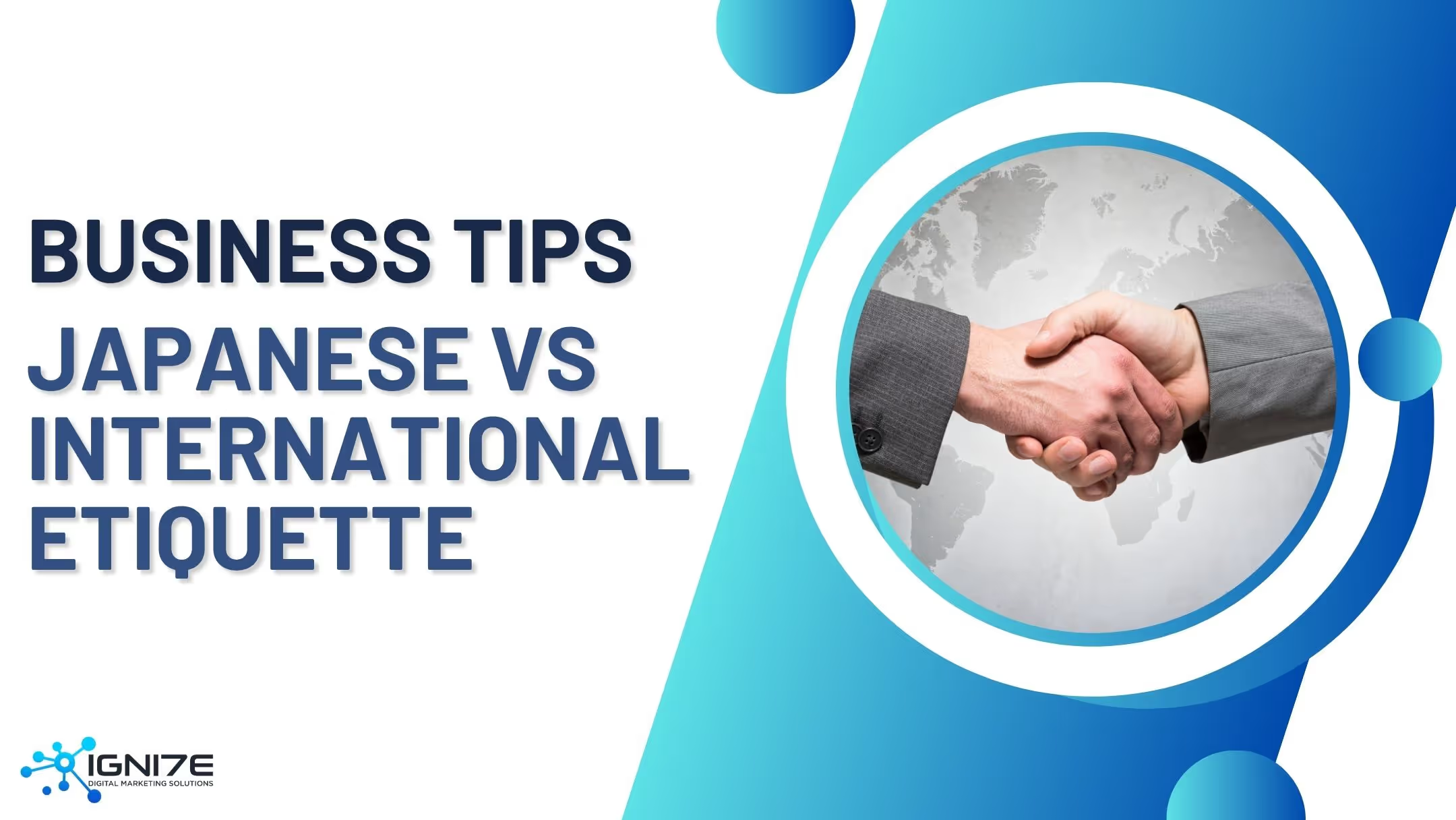Top 10 Japanese Business Etiquette Rules to Remember

Doing business in Japan offers a wealth of opportunities, but it also requires a strong understanding of local customs and etiquette. Japanese business culture is built on respect, harmony, and subtlety, which can differ significantly from the direct and fast-paced approaches common in certain other countries. Whether entering negotiations, attending meetings, or simply exchanging business cards, understanding these unspoken rules can make or break your professional relationships.
In this article, we’ll highlight the top business etiquette rules specific to Japanese society. Whether you're planning a business trip, expanding your network, or working with Japanese clients or partners, these insights should help you navigate Japan's unique business landscape with confidence and respect.
Japanese Business Etiquette Rules
- Bowing
- Business Card Etiquette
- Hierarchy and Respect for Authority
- Group Harmony
- Silence
- Punctuality
- Gift Giving
- Business Meetings
- Avoiding Direct Refusals
- Dress Code
1. Bowing

- In Japan, bowing is an essential form of greeting and showing respect. While handshakes are becoming more common, bowing remains the standard. The depth of the bow varies depending on the formality of the situation, with a more profound bow reserved for more formal interactions or apologies.
- Difference: In many Western countries, handshakes are the norm, and bowing is less common, if not unfamiliar.
2. Business Card Etiquette

- When exchanging business cards in Japan, called meishi (名刺), offering your card with both hands, with the text facing the recipient, is crucial. Take a moment to carefully examine the other person’s card before putting it away—never shove it into your pocket or wallet without due respect.
- Difference: In many Western countries, business cards are exchanged casually, often without much attention to their significance.
3. Hierarchy and Respect for Authority

- Japanese business culture strongly emphasizes hierarchy and seniority. When addressing someone, use an honorific (e.g., “san” after a name) or their professional title (such as “Director”) and be mindful of the rank of the person you're speaking to.
- Difference: In some countries, like the U.S., there’s often a more informal approach, even with senior figures. Titles might be less emphasized.
4. Group Harmony

- Maintaining harmony or wa (和) within a group is paramount in Japan. Decisions are often made after consensus-building rather than by one individual. This process may seem slow to outsiders, but it reflects a commitment to unity and long-term stability.
- Difference: In many Western business cultures, individuals are often encouraged to voice strong opinions and make decisions quickly.
5. Silence

- Silence in Japanese business meetings isn’t uncomfortable. It's viewed as a sign of thoughtful consideration. Rushing to fill every silence with words may be seen as unprofessional or disrespectful.
- Difference: In some Western cultures, silence during meetings may be considered awkward, leading to a rush to speak or “break the silence.”
6. Punctuality

- Being on time is crucial in Japanese business culture. Even a few minutes late can be seen as disrespectful and unprofessional; it’s therefore recommended to be early to make a good impression.
- Difference: In some cultures, being a few minutes late may not be as strictly frowned upon, though this varies by context.
7. Gift Giving

- Gift-giving is an essential custom in Japan, especially when starting business relationships. Gifts should be presented with both hands and wrapped nicely. The gift itself should not be too extravagant, but thoughtful and symbolic.
- Difference: While gift-giving occurs in many cultures, it is more ritualized in Japan and often carries symbolic meaning in business contexts.
8. Business Meetings

- Initial business meetings in Japan are often quite formal and may begin with a lot of polite small talk before getting to business. This is meant to build trust and establish a respectful relationship before diving into negotiations.
- Difference: In some countries, business meetings may be more direct and focused on results from the get-go.
9. Avoiding Direct Refusals

- In Japanese business culture, saying “no” directly is generally avoided. Instead, more indirect phrases are used, such as “It might be difficult” or “Let me consider it.” It’s important to read between the lines and understand the real meaning behind these responses.
- Difference: In some cultures, a direct "no" is more common and expected to avoid confusion.
10. Dress Code

- In Japan, business attire is typically formal and conservative. Dark suits, white shirts, and conservative ties are standard for men, while women should dress modestly and professionally. Even in more relaxed environments, a sense of formality is essential.
- Difference: In some Western cultures, business casual attire may be more widely accepted, especially in creative industries.
Conclusion
Understanding Japanese business etiquette isn’t just about following rules—it’s about building trust and showing genuine respect for your counterparts. From how you bow to the language you use in meetings, each gesture plays a role in how you're perceived professionally.
By embracing Japan’s emphasis on hierarchy, group harmony, and indirect communication, you'll stand out as a respectful and culturally aware partner. Whether preparing for your first meeting or strengthening long-term business ties, mastering these etiquette fundamentals is key to successful business in Japan.















